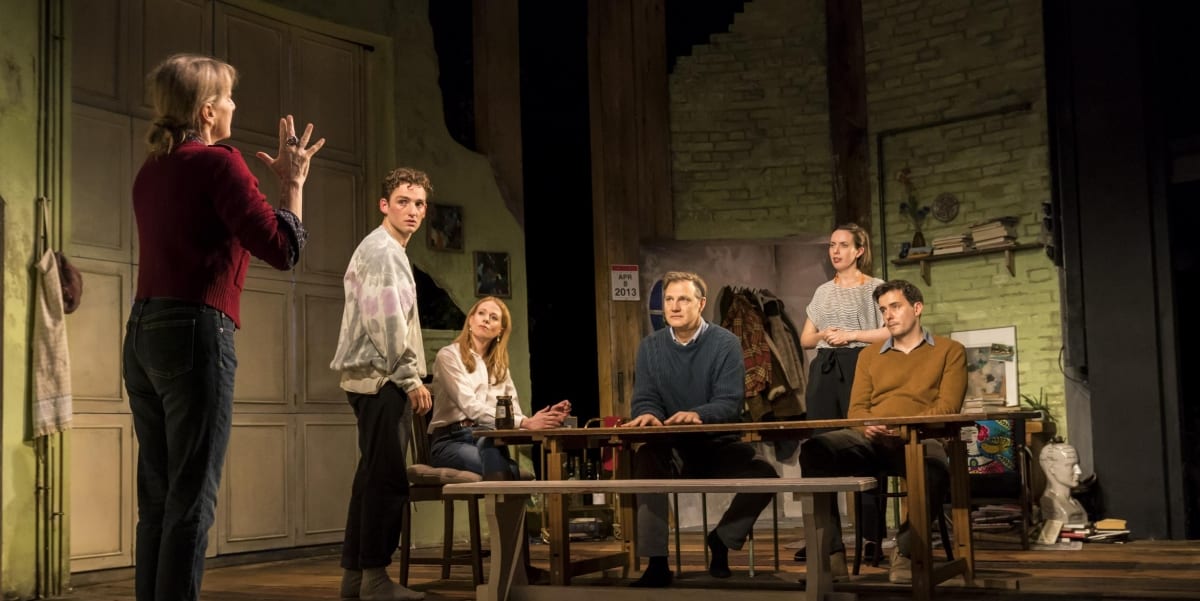I’ve just seen a play about my family. No really. Three very different grown-up kids – tick. Activist boomer parents – tick. Endless arguments and sparring underpinned (mostly) with love – tick. This is the Burnell family dynamic captured and put on stage for the delight of audiences.
The action is set over 20 years, with Act One in 1997, Act Two 2007 and finishing in 2017 all in the kitchen and principle living space of the family home in Newbury. The kids start at school and university and we watch them develop and grow through the years (and due to an interesting approach to marking the changes of the act, we see more than just these decades apart snapshots).
The staging of the play is good and underpins the family dynamic well. The gaps between the scene changes were interesting and allowed the play to zip along without feeling overly long. However, nearly two hours without an interval is quite a high price to pay for these interludes.
Lesley Sharp and David Morrissey are just as excellent as their body of work would bring you to expect. The kids are also all good actors even if at times I really didn’t like the characters.
This seems a play written with perhaps more sympathy towards the passions and lives of the boomer parents than the disappointments of the Gen X kids. As Polly (Kate O’Flynn) says at one point “do you think it is possible that when we come home, we become our teenage selves again?” This is something I have observed about myself often recently in my parents living room. It is not my most attractive quality but it is a near-universal truth.
But so too is the fact that the boomer generation has had it significantly easier and better than their children. So while these kids’ lives disappointed ‘Ethically, politically, pragmatically and personally” (as the play would put it), there is less understanding of why this generation hasn’t had the ability or desire to take to protest as their parents did. That felt like a gap to me.
I know this family. I’ve lived this life. These are my parents, my parents’ friends, my friends and their folks. I know this kitchen. I’ve sat in dozens of them watching families live and love, squabble and make up. I know that garden – much more tended than the kitchen, more beloved but not where the action is. I know these people. People who refer casually to “the Greenham women” and know exactly what is meant. Who quote literature and economists at each other, in a game of one-upmanship but are just as much themselves when making crude jokes. And writer Jack Thorne captures them well.
The End of History is a gentle play. While it touches on political themes, on class and activism, on the generational divide, on the disappointments of Blairism and the challenge of making a difference, this isn’t a play solely about big P politics. This is a play about the small p politics of family dynamics and how the parent’s outlook on life affects every part of these. But it took a little too much time showing the family as a whole and left the impact on the individual members underexplored.
This play spoke well to me personally. It made me further examine my ongoing and loving relationship with my boomer activist parents and in many ways, I was the ideal audience member. However, I don’t think it quite did enough to illuminate the broader themes it touches upon.

